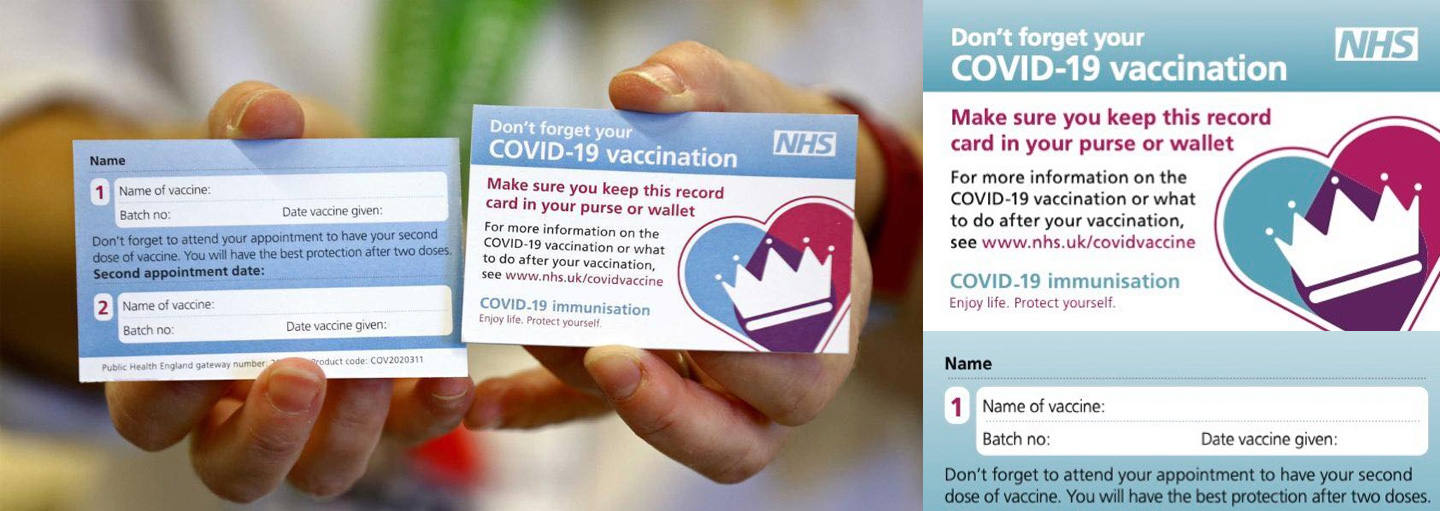The NHS this week released images of the wallet-sized documents that will be given to individuals who take the COVID-19 vaccination.
The card will include a section for recording the specific name of the vaccines, the batch number, the date it was administered and a reminder to get a second dose at a later date.
On the other side, the card reads: “Make sure you keep this record card in your purse or wallet. Enjoy life. Protect yourself.”
The UK is preparing to administer the Pfizer/BioNTech vaccine on Tuesday, as the rest of the world watches on.
According to CNN, around 50 hospital hubs in England will begin offering the vaccine to people over 80, high-risk National Health Service workers and care home staff.
Around 1,000 doctor’s offices across the nation will then start operating local vaccination centers for vulnerable patients.
Earlier this week, Foreign Office Minister James Cleverly appeared on Sky News, where he was questioned about the possibility of the vaccination cards acting as a form of “immunity passports.”
Cleverly said vaccine passports were not being planned, however, he described the vaccine as a means of “unlocking” lives.
“It’s about unlocking, it’s about unlocking people’s lives,” he said. “It’s about unlocking the economy, it’s about making sure we protect lives and we protect the economy.”
Following growing concerns over the vaccination cards, Public Health England confirmed that it is simply a document used to record the vaccination details, similar to those used for other NHS vaccinations that involve more than one dose.
The Government’s vaccine minister, Nadhim Zahawi, has said the vaccination would not be compulsory, but suggested businesses might require proof of vaccination before allowing people in.
“We’re looking at the technology,” Zahawi told the BBC. “And, of course, a way of people being able to inform their GP that they have been vaccinated.
“But, also, I think you’ll probably find that restaurants and bars and cinemas and other venues, sports venues, will probably use that system – as they have done with the (test and trace) app.
Zahawi went on to say: “I think that in many ways, the pressure will come from both ways, from service providers who’ll say, ‘Look, demonstrate to us that you have been vaccinated.’
“But, also, we will make the technology as easy and accessible as possible.”






















